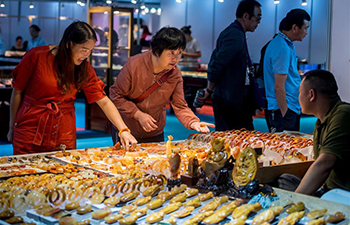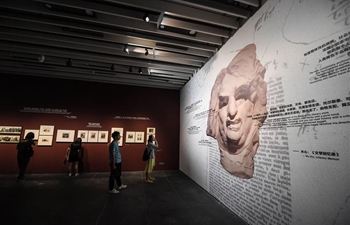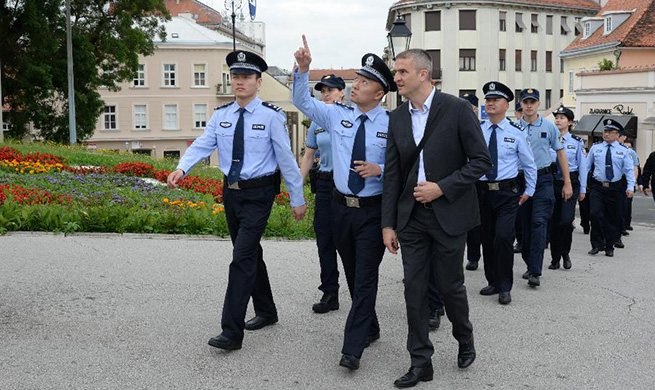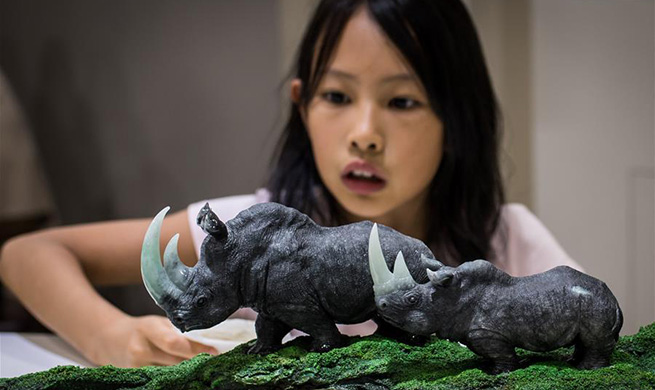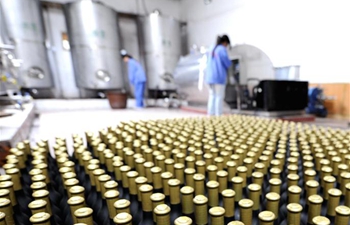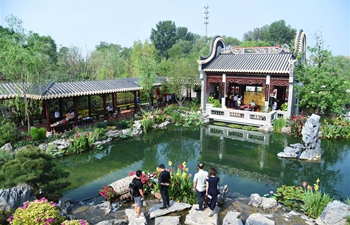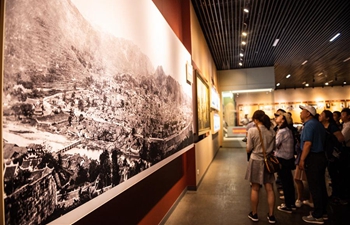HAVANA, July 13 (Xinhua) -- "I am Cuban by birth, but my heart is Chinese." When Caridad Amaran talked about recent trips to China, tears clouded her eyes.
Amaran, 88, one of the last two living divas of Cantonese opera in Cuba, has dedicated her life to promoting Chinese culture. However, only recently has she got the chance of visiting the far land that inspired her life on stage.
She and her colleague Georgina Wong performed in the southern Chinese cities of Kaiping, Enping, and Guangzhou in Guangdong Province, as well as in Hong Kong, in 2011, 2014 and this March.
Born in western Cuba's Pinar del Rio Province, Amaran lost her father at the age of one month. Her mother then relocated to Havana, and they settled in the capital's Chinatown.
After living with a Chinese cook Rafael Jo for one year, they were forced to leave the house, as its owner came down with a severe and contagious lung disease.
The future looked bleak for the mom and daughter, until a Chinese immigrant who just arrived on the island pitied and sheltered the helpless two.
The immigrant, Julian Fong, worked at a laundry. "Opposite the laundry was the Kwok Kwong Cantonese Opera Company and he would take me to watch the rehearsals," Amaran recalled.
Amaran was only four then. "I wanted to stay and learn, but they did not accept me because I was very young." Finally, Fong decided to be the teacher.
At the age of eight Amaran made her debut with a stage name Caridad Jo. By then, there were 15 young performers of Chinese descent, including Wong, who performed at the Golden Eagle Theater, Chinatown's cultural center.
In those days, Havana's Chinatown received Cantonese opera companies from San Francisco, Los Angeles, Honolulu and Hong Kong.
In the early 1950s, the three then-existing theatrical companies gradually disbanded. Amaran went to work as a cashier at a Mandarin restaurant in Havana.
One day Fidel Castro entered the restaurant. "He was surprised by how easily I could translate the menu, so I explained to him that I had learned the language from my stepfather," Amaran said, smiling.
In 1994, after the creation of a state agency to preserve and promote Havana's Chinatown, Amaran was reunited with Wong and three other former performing partners. They decided to relaunch stage careers.
"I wrote the scripts for each (show) but they had to be reduced a lot because our memory was no longer what it used to be," she recalled.
This revival of Cantonese opera led the divas, as they were affectionately called, out of Chinatown into a wider world of Havana theaters.
Lau Pok Chi, an American photographer born in Hong Kong, met Amaran and Wong while researching Cuba's Chinese descendants. He made a first recording of the "Havana Divas," produced videos about their history, and broadcast them on television in China.
In 2011, Amaran and Wong traveled to China, where they performed for two weeks in several cities, and visited the town of their ancestors. Later, they visited there twice more.
"That was a dream that came true, because I could never go when I was young," said Amaran.






